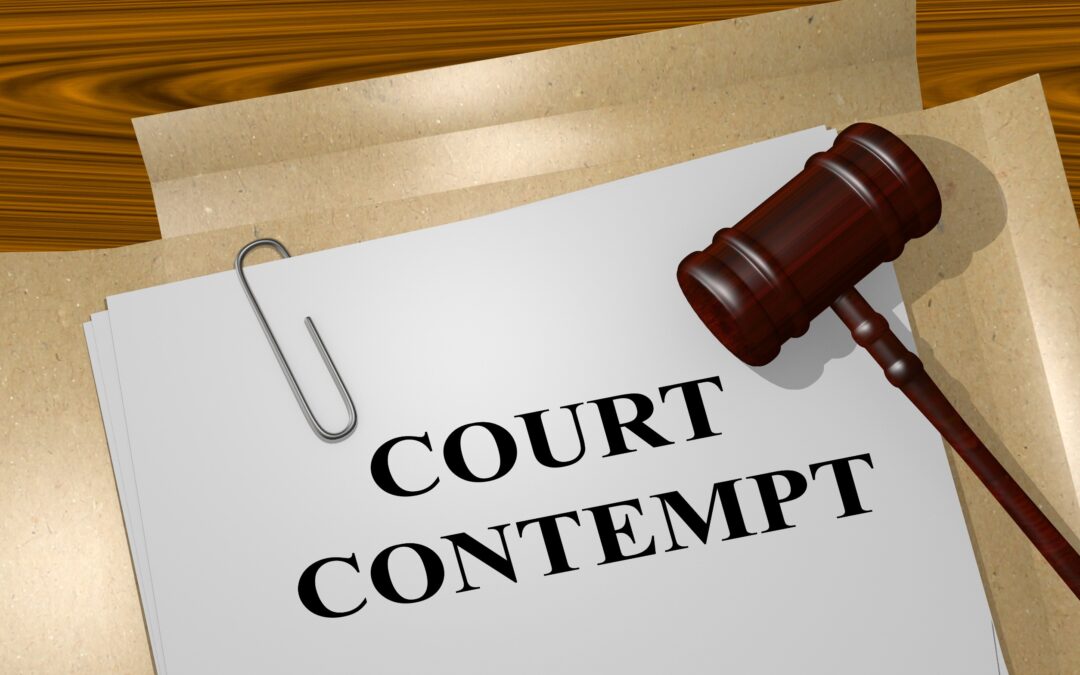Dealing with an ex-spouse after a divorce may be challenging. It is especially true if they do not follow the court order. Luckily, legal mechanisms exist to oblige their compliance. One such tool is known as the motion for contempt. Keep reading to learn about the two types of contempt, their limitations, and how an experienced attorney can help.
Contempt
Contempt means that someone willfully refuses to obey a judge’s order, mandate, or decree. If the court finds contempt, a punishment in the form of incarceration or fines may follow. Contempt can be either civil or criminal. The key difference is that civil contempt is when someone disobeys a court order. Direct criminal contempt is when a person disobeys a court order in the presence of the court.
In the case of a divorce, a court may find civil contempt if your spouse refuses to pay alimony or contacts you even though the court has prohibited them from doing so.
A criminal contempt would be found if, during a divorce hearing, your spouse disobeyed a court order. A good example would be the court ordering them to not discuss their previous romantic relationships, but they do it anyway.
Finding Contempt
An attorney can help you provide evidence to prove that your ex-spouse willfully disobeyed the court order. For example, if the court order obliged your ex-spouse to pay monthly alimony, a lawyer can help you prove that the ruling explicitly mentions this requirement. An attorney can help you convince the judge that your ex-spouse was fully aware of the requirement to pay alimony and willfully avoided it.
Some extenuating circumstances may make it impossible for your ex-spouse to obey the court order. For example, they may have become seriously ill or injured and lost their wages. In this case, they would not be in contempt, as their lawyer would prove that they were not able to follow the order.
Purge Provision of Contempt
This legal term describes a mechanism by which your ex-spouse may avoid further punishment due to civil contempt. Once the court finds contempt, it establishes a purge provision. This describes what actions your ex-spouse should take to avoid further punishment. For example, they may pay the alimony they owe you in full. In this case, they would not be subject to further imprisonment or fines.
When it comes to criminal contempt, there is no purge provision available.
Court Limitations in Relation to Contempt
According to the Florida Constitution, courts cannot imprison individuals for not paying debts. Say your court order requests an equitable distribution award. This means that your spouse should pay you a specific amount of money to fairly distribute your marital estate. An equitable distribution award is often classified as a debt. Therefore, the court cannot imprison your ex-spouse for not complying.
At Tampa Divorce, we understand that navigating life after a divorce may be tough. Call us today at 813.370.0893, or visit us at our location at 13057 W Linebaugh Ave Ste 102, Tampa, FL 33626. We are here to help you.


